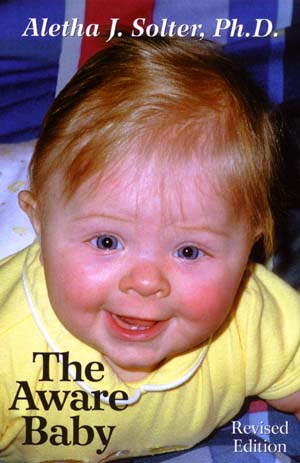Eleven-month-old is aggressive towards mother
by Aletha Solter, Ph.D.
Question:
My 11-month-daughter doesn't seem to want anything to do with me anymore. She has a strong personality. She often growls at me. She's constantly getting after me and getting mad at me. She also scratches my face. Can you please help me by informing me of what type of discipline is appropriate for such a young child? I don't believe in spanking or smacking her hand, so how do I get her to stop hitting and scratching me and others? Every time I am firm with her and say "no" she laughs and does whatever she may have been doing again. Or if she doesn't laugh at me when I say "no" she cries, and then I'm the big meanie. HELP!
Answer:
It's hard to feel loving towards a child who doesn't seem to return your love. I encourage you, first of all, to explore the possible reasons why your daughter might be acting aggressively towards you.
All babies feel occasional anger at their mothers (or primary caretakers). This is difficult for mothers to accept, but it is common and normal. Mothers are wonderful people who do their best to fill their children's needs. However, mothers are not perfect. They are sometimes tired, impatient, angry, resentful, anxious, depressed, or stressed, and they cannot always meet their baby's needs immediately. I encourage you to take care of yourself and your own needs, so you won't be a contributing factor to your daughter's stress.
Furthermore, mothers must sometimes set limits for their children's safety (such as taking away dangerous objects). I am glad that you are opposed to corporal punishment, because spanking your daughter would only further contribute to her anger towards you. But some frustration is inevitable.
All of these factors may be contributing to your daughter's anger at you. When your daughter hits or scratches you, she is not rejecting you, but simply showing you her anger.
I have two suggestions to help your daughter become less aggressive towards you.
1. Encourage therapeutic laughter with the following game:
Sit on the floor or on a bed with your baby. Every time she touches you, fall over dramatically, saying, "You knocked me over!" This will probably make her laugh, and the more she laughs, the more she will dissipate her anger. I call this kind of play a "power-reversal game," because it reverses the usual power imbalance between adults and children. You are letting her feel powerful, but you are not encouraging her to be more aggressive. On the contrary, she will release anger through laughter and become less aggressive after this kind of play. It will also improve your relationship with her.
2. Don't back off from setting reasonable limits simply because your daughter cries.
Crying is a healthy outlet that helps to dissipate aggressive energy and accumulated frustrations. When you need to stop her from hitting or scratching, stay with her while she cries to let her know that you love her no matter how sad or angry she is feeling. If she tries to hurt you, protect yourself firmly but gently, but stay close to let her know that her anger cannot destroy the bond between you. You can say, "I can't let you hurt me, but it's okay to be mad at me. It's okay to cry. I'll stay with you until you feel better." After the crying has run its course, you will probably discover that your daughter is much more relaxed, loving, and gentle.
About Aletha Solter:
Aletha Solter, PhD, is a developmental psychologist, international speaker, consultant, and founder of the Aware Parenting Institute. Her books have been translated into many languages, and she is recognized internationally as an expert on attachment, trauma, and non-punitive discipline.
Aware Parenting is a philosophy of child-rearing that has the potential to change the world. Based on cutting-edge research and insights in child development, Aware Parenting questions most traditional assumptions about raising children, and proposes a new approach that can profoundly shift a parent's relationship with his or her child. Parents who follow this approach raise children who are bright, compassionate, competent, nonviolent, and drug free.
For more information about aggressive behavior in babies and toddlers, see Aletha Solter's book, The Aware Baby.
